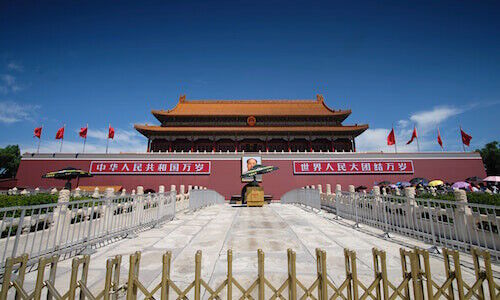PBoC in 2020 and Beyond: A Different Crisis Manager?
Top central banking officials in China are warning about growing risks in the financial system and increasingly signaling to local lenders that the next chapter of monetary policy will involve more self-reliance.
In the same week that President Donald Trump sought to fill open slots on the U.S. Federal Reserve board – including unlikely nominee Judy Shelton who has a history of advocating for the gold standard – China was reaffirming its commitment to central banking independence.
Despite a string of recent defaults – most notably in the property sector where Guo shuqing, China Banking and Insurance Regulatory Commission (CBIRC) chairman, unveiled that liabilities that were over a third higher than official data – the central bank is signaling that the cushion will continue to remain absent for local governments and financiers.
The Market’s Job, Not Ours
Earlier this week, Guo warned against reliance on central government bailouts, adding that any usage of public funds would undergo strict review and conditions.
«Financial institutions must try their best to rescue themselves,» said Guo, who is also the Community Party chief of the People’s Bank of China (PBoC). «Governments won’t intervene if their risk can be solved through the market.»
Local governments and financiers are attempting to force Beijing or the central bank to bail them out by citing social stability as an «excuse», said PBoC governor Yi Gang separately, adding that it must create a firewall between itself and the treasury.
Shadow Banking: Unwinding Continued
Even outside of formal banking, China continues to bolster the quality and control of its financial system by persistently unwinding the informal shadow banking market.
Although regulators made compromises by extending the deadline for balance sheet cleanups to 2021-end, top PBoC officials have issued stark statements including director of the general executive office, Zhou Xuedong, who said in July that «Going back to rampant off-balance sheet business, speculating with funds and creating financial chaos would be unacceptable».
The recent tightening of the mainland’s fintech industry – including the Ant IPO pullout and more regulation of «crazy so-called innovation» – was also viewed by industry watchers as yet another move to rein in on the non-bank lending market.
Priority List
Further reinforcing that protection is not guaranteed for most, the PBoC and another top regulator released a set of guidelines yesterday to define systematically important banks, similar to the American «too-big-to-fail» cluster.
This list will be based on a selection of 30 policy banks, commercial banks and other previously deemed systemically important, according to a «Caixin» report (behind paywall) citing relevant documents, with experts predicting a 20-strong list with mostly lender with at least 2 trillion yuan ($305 billion) in assets.
Regulators will grade the banks every year and submit a final list to the State Council – Beijing’s top administrative body – for approval.
Central Banking Independence
In 2020, world governments are once again blurring the line between fiscal and monetary policy as central banks such as the U.S. Federal Reserve and the European Central Bank are increasingly being relied upon to buffer economic woes. Ironically, these central banks are actually independent, unlike the PBoC which is an entity within Beijing’s State Council.
China joined the rest of the world in stimulus-based crisis management in 2008 as ex-premier Wen Jiabao unleashed an enormous stimulus program to offset the impact of the global meltdown with the PBoC cutting rates, releasing liquidity and even establishing a peg against the U.S. dollar to protect its economy from the slowdown. Time will tell if it will join the stimulus bandwagon again in this chapter.
Monetary loosening is always easier than monetary tightening, Yi added, reiterating that the PBoC must not assume corporate credit risks to avoid damaging the credibility of the yuan.






















